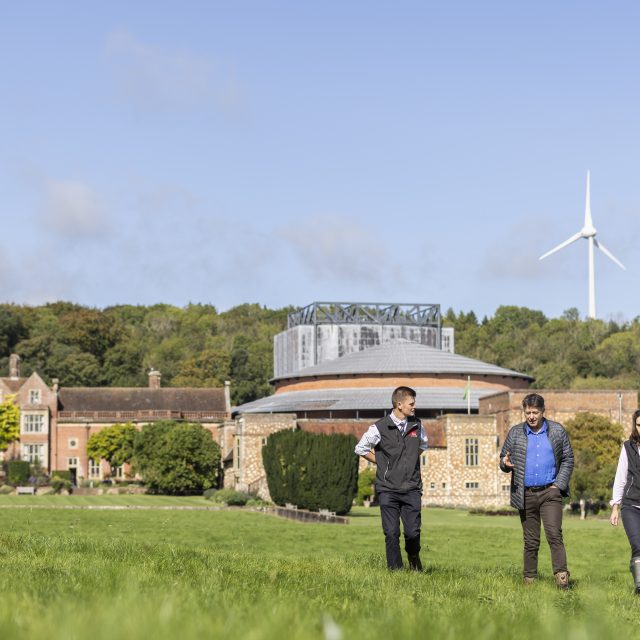Tips and tools for successful farm succession planning
Succession planning has become more important than ever for farming families following the changes to the inheritance tax regime, but conversations need to be focused on more than just tax and the transfer of assets.
It requires a two-pronged approach – alongside tax considerations there needs to be equal focus on the management of the business and how to ensure its long-term viability.
Successful succession planning is about making sure everyone within the family can move forward with clarity and confidence.
It’s a long-term, strategic process which is about ensuring business continuity, financial stability and avoiding family disputes.
Start early and be honest
Every family and business is different, so succession plans do need to be tailored –and the earlier you start the process, the better.
What matters most is being open and honest from the outset, managing expectations through clear, consistent communication.
Clarify ownership of assets and calculate liabilities
The first step should be about establishing the facts of the business – even if you think they are obvious.
This means confirming the exact ownership of assets, the status of tenancies and timescales, mortgages, overdrafts, pensions, personal investments and cash.
A crucial part of this process is also calculating what the likely tax liability will be following changes to the inheritance regime. This is where a valuer is needed to carry out an in-depth valuation of the land and any other assets. It is important to have an accurate idea of what tax liability you might be facing so you can then take informed decisions about ways to mitigate it.
What’s the shared vision for the future of the business?
You can then start the conversation about what everyone wants and how they see the future. People often have different ideas and opinions that may never have been voiced before.
Drilling into the detail of each family member’s expectations is the key to long-term motivation and happiness. For example, understanding what the next generation want from their working life can prevent issues down the line.
In farming, there are naturally periods that are busy and the work must be done, but identifying when people can take time off and establishing a fair reward structure can go a long way in avoiding resentment or jealousy.
It is equally important to explore what the older generations think retirement looks like, as it often means different things to different people.
This can then facilitate a discussion on how retirement can be managed – and financed. Will they stop work entirely, or phase out gradually? Will retirement be funded through the farm or personal pensions/investments? Can the business support any drawings?
Take independent advice
There is always the risk when succession planning that small differences of opinion can turn fractious. This is why having a third party facilitate a family meeting can help things to run more smoothly and ensure everyone has their voice heard.
Dealing with your own family can be challenging, as personal relationships and business ones overlap. Having someone independent in the room can help you navigate any divisive situations and establish a clear path forward.
The sort of questions that will need to be addressed are around when is the right time to give the younger generation a more active role within the business? How best to approach the passing on of assets within the business? Would a change in business structure or enterprises put the business on a more secure financial footing? Is now the right time to buy or sell assets? What are the contingency plans in the event of illness or a divorce in the family?
Historically, succession planning hasn’t necessarily involved a transfer of equity, but the new IHT regime does mean that this needs to be thought about much earlier.
Any decisions about the future of the business clearly have legal and tax implications, so it is also vital to discuss any proposals with your solicitor and accountant.
Finally….
While those actively engaged in the farm are likely to be most involved in discussions, it is also important to include any ‘off-farm’ children and the partners of all interested parties.
For many people, this will be the most important decision they make. Every situation is different, but the key to success is honesty and openness. It may be uncomfortable in the short term, but it makes for smoother sailing when big decisions are made.
The following checklist can help farming families assess how prepared they are for a smooth and successful transition to the next generation.
- Is the ownership of all key business assets – land, buildings, property and equipment – clearly understood and clearly documented?
- Are the terms of any tenancies, mortgages, overdrafts and other debts up to date and understood?
- Have you included the details of any other income streams, savings or investments?
- Has a recent valuation of the business and all assets has been carried out by a qualified valuer?
- Have you fully quantified the impact of the new IHT regime in terms of your future tax liability, factoring in the tax reliefs which will remain available?
- Has the whole family sat down in a neutral place to discuss the future direction of the business?
- Is there a shared understanding of the long-term vision for the business?
- Have you agreed how the business may need to evolve over the next 10-20 years?
- Is the business structure (e.g. sole trader, partnership, limited company, trust) still the right one?
- Have the expectations and aspirations of each family member, including those off-farm, been shared?
- Is there is a clear plan for who will take on the day-to-day running of the business in future?
- Is a phased transition in terms of management being considered, rather than a sudden handover?
- Is a suitable reward structure in place that reflects each person’s contribution and responsibility.
- Has the financial capacity of the business to support all generations been assessed?
- Have you consulted your solicitor and accountant to ensure you understand the legal and tax implications of any proposed changes?
We are experienced in helping all types of land-based businesses to navigate the process of succession planning. For more details contact one of our advisors.






